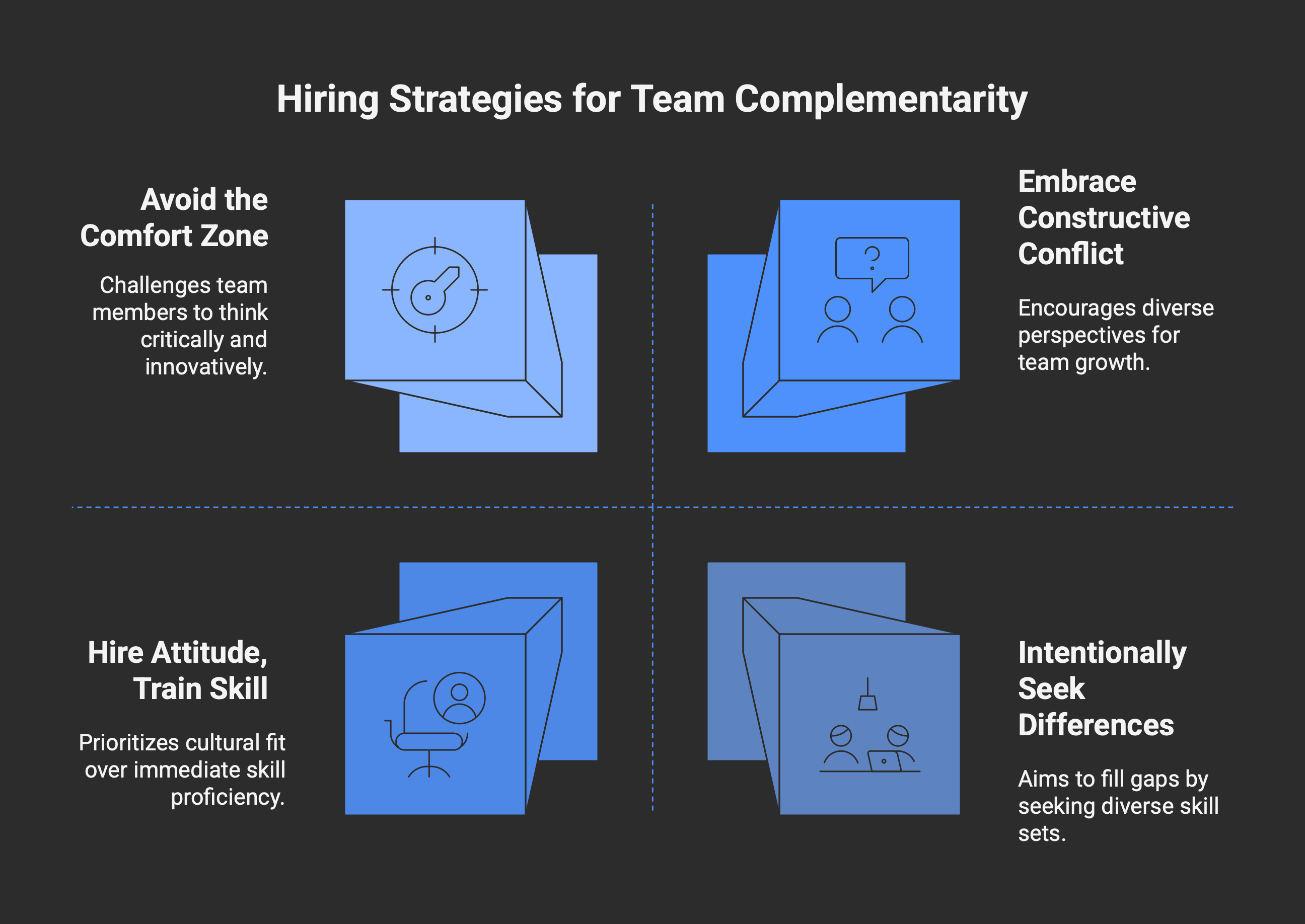Becoming Redundant: The Strange Truth About Real Leadership
Becoming a true leader means making yourself redundant; build teams of complementary talent, not clones. That’s how greatness scales.

Here’s the hardest leadership lesson I’ve had to learn: the better I lead, the less I matter.
That sounds counterintuitive, right? We’re wired to believe that leaders must always be out in front, steering the ship, “being the hero.” But if you’re the one making all the decisions, carrying all the weight, and solving all the problems, you’re not leading, you’re hoarding.
True leadership is about making yourself redundant.
And believe me, that was not something I figured out quickly. In fact, it took years, plenty of mistakes, and some spectacular failures to understand that leadership isn’t about being indispensable; it’s about creating a team that doesn’t need you to be indispensable.
Copy-Paste Hiring: My Biggest Early Mistake
I remember when I first started building teams. My naive logic went like this: if I hire people like me, I’ll multiply success. Why not clone what works?
It was a spectacular failure.
Imagine walking into a room full of people who have the same strengths, the same blind spots, the same ways of thinking. It’s like forming a band with five lead guitarists who refuse to play rhythm. Nothing gets built. Nothing holds. The energy collapses under its own sameness.
At the time, this looked like endless groupthink and painfully predictable conversations. Everyone agreed with me (which I secretly loved at first), but no one built on my ideas, no one challenged the strategy, no one dared to ask: but what if you’re wrong?
This was a tough pill to swallow, because it meant confronting an uncomfortable truth about myself: I had been hiring people to validate me, not to challenge me.
The Hero Trap
Ironically, this is the same trap many leaders fall into: the “hero” model. You hire to amplify yourself, you solve all the problems, you hold your title like a cape. It feels empowering, right up until the moment you realize you’ve built a team that can’t function without you.
That’s not leadership. That’s ego management.
Real leadership is about being a hero maker.
You want quirky, intense, raw teammates, the ones who don’t hesitate to poke holes in your big plans, who don’t default to yes, who seem to thrive on making you second-guess yourself. They don’t exist to make you comfortable. They exist to make the whole team smarter, sharper, hungrier.
If you’re building a team of clones, you’re just multiplying your weaknesses. But if you build a team of complements, you actually create strength.
Complementarity Is the Secret Sauce
This is the essence of what changed everything for me: hiring complementary skill sets and temperaments beats hiring people “like me” almost every time.
It means intentionally seeking people whose strengths fill the gaps that others leave exposed.
It means embracing that some people will challenge you in ways that feel uncomfortable, but that ultimately propel the team forward. It means welcoming the intense, the quirky, the raw, because they’re the ones big ideas need to get sharpened into success.
A team that complements itself is like a finely tuned machine where every part has a role that adds unique value. In contrast, a team of clones is like a gear system with identical cogs; they spin, sure, but they don’t mesh well enough to drive real progress.
The Social Media Illusion
Every time you scroll through social media and see leaders posting those glossy, smiling team pictures, everyone lined up like the cast of a Netflix show, I smile wryly. Because what you don’t see in that photo are the outliers, the oddballs, the ones not easily Instagram-friendly.
But those are the people keeping your ship afloat.
The best-performing teams aren’t about image symmetry. They’re about intellectual asymmetry, different minds filling each other’s gaps.
Those “quirky” individuals may not make the highlight reel, but their presence is non-negotiable if you want to build a team that moves aggressively and adapts fast.
Embracing Discomfort as Growth
A big part of the challenge when building complementary teams is embracing discomfort.
Not everyone loves to be challenged or questioned. But the raw, intense team members who engage in thoughtful, direct debate are the ones raising the bar. They push you and the team to constantly refine ideas and prevent the creeping complacency that kills innovation.
Leadership is often painted as about charisma or decisiveness, but in reality, it often means being willing to stand there as uncomfortable truths get spoken about your plans and your own assumptions.
At one point, it felt easier to surround myself with agreeable voices. But I quickly learned that comfort zones kill growth zones.
Deliver, Don’t Just Dazzle
Here’s another uncomfortable truth: you don’t need to be universally liked to be an effective leader. The trap of “I must be agreeable” will dilute your leadership into mush.
What matters is not how charming you are in meetings or whether the team laughs at your jokes. What matters is whether you do what you say you’ll do—and whether you build an environment where your team can do the same.
Trust is forged in delivery, not in likability.
If you promise to deliver, then you must. No excuses, no shortcuts. And if you want your team to hold themselves to the same standard, that starts with the example you set.
How to Hire for Complementarity
Changing your hiring mindset is the first step toward creating a high-performing complementary team. Here’s what worked for me:
- Hire Attitude, Train Skill: Skill gaps can be closed with training and mentoring. Attitude, drive, and values can’t.
- Intentionally Seek Differences: Look for candidates whose strengths are your blind spots. If you’re methodical, hire a visionary. If you’re detail-oriented, hire a big-picture thinker.
- Embrace Constructive Conflict: Encourage comfortable candidates to disagree respectfully; it’s a vital sign of team health.
- Avoid the Comfort Zone: Resist the urge to hire people who will just say yes. You want sparks, not sparkless.

Leadership as Stewardship
The culmination of all this is a shift from leadership as control to leadership as stewardship.
You’re less the captain shouting orders and more the gardener cultivating a diverse, thriving ecosystem.
Your job is to create an environment where different individuals grow, challenge one another, and produce collective brilliance that’s far greater than any one of you could realize solo.
And the ultimate marker of leadership success? When the team can operate, innovate, and win, whether you’re present or not.
Redundancy Is the Point
You might feel a twinge of discomfort hearing that making yourself redundant is a leadership goal. It sounds like a job security risk wrapped in a paradox.
But the paradox of leadership is this: the greatest leaders make themselves unnecessary. Not because they don’t bring value, but because they’ve designed a system where the value doesn’t depend on them.
Sure, there are moments when your expertise and presence will be critical. But if your team needs you every hour of every day, you’ve built dependency, not independence.
Every leader has to make this choice: Do you want to be the hero at the center of the picture, or the quiet force that builds a team full of heroes?
Becoming the Ultimate Hero Maker
If there’s a billion-dollar takeaway from my leadership journey, it’s this: invest your energy in elevating others, not in elevating yourself.
Actively seek people who don’t mirror your every habit or approach. Value the ones who ask the uncomfortable questions, who bring different perspectives, who are unafraid to challenge your assumptions.
As you build this team, learn to step aside and trust your team to do the work you once held onto. Redundancy isn’t failure, it’s the clearest sign you’ve succeeded.
So, be the hero who makes heroes. Be the leader who makes themselves unnecessary.
That’s how greatness scales.
Stay Raw | Stay Real | Stay Intense.
